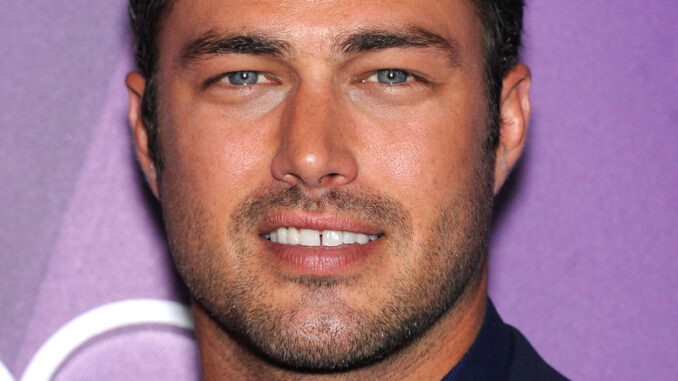
The pilot episode of a television series carries a monumental weight. It’s the handshake, the first impression, the delicate dance of establishing characters, stakes, and the very soul of the world it seeks to build. For NBC’s Chicago Fire, that introduction was not merely a splash; it was a devastating plunge into the abyss, marked by a single, seemingly innocuous line delivered by a character who would become one of its enduring anchors: Kelly Severide, played by Taylor Kinney. His first words on screen, uttered moments before tragedy irrevocably altered Firehouse 51, were an eerie prophet, a cruel irony that underscored the brutal reality of the job.
The scene opens with a deceptive calm. We are introduced to the bustling, lived-in camaraderie of a fire station. Aromatic coffee brews, weights clang in the gym, laughter echoes through the common room. Amidst this domestic symphony of duty, we meet Lieutenant Kelly Severide of Squad 3, a figure of effortless charm and physical prowess. He moves with a lean confidence, a natural authority that hints at both competence and perhaps a touch of recklessness. The call comes in – a routine warehouse fire, or so it seems. The men of Squad 3 prepare, their movements practiced, their faces etched with a familiar readiness.
Then, Severide leans into the frame, a smirk playing on his lips, and delivers his first ever line: "Who wants to get dirty?"
It's a throwaway question, designed to inject a bit of bravado and dark humor into the mundane act of gearing up. It speaks to the physical grime, the soot, the sweat that defines a firefighter's daily toil. It's a challenge, an invitation, a declaration of intent. In that moment, it’s a confident, almost flippant pronouncement of the anticipated labor. Yet, the words hang in the air, imbued with a horrific, unforeseen double meaning. He was not just asking about physical dirt; he was unknowingly forecasting the emotional, psychological dirt that would stain them all within minutes – the kind of dirt that never truly washes off.
No sooner are the words out than the scene shifts to the chaotic reality of the fire. The metallic tang of smoke, the roar of the inferno, the symphony of alarms and panicked shouts replace the earlier domesticity. What was initially reported as a contained warehouse fire rapidly escalates into a raging, uncontrollable beast. The air itself feels thick with impending doom. Through the haze and the flashing lights, we witness the terrifying, unpredictable nature of fire. The routine call becomes a desperate struggle for survival.
And then, the disaster strikes. A flashover, sudden and violent, engulfs the building. In the agonizing moments that follow, amidst the collapsing structure and the overwhelming heat, one of their own, Andy Darden, is lost. He had gone in with Lieutenant Matthew Casey, defying orders in a moment of reckless heroism. Severide, Casey, and the rest of Firehouse 51 are thrust into the unthinkable: the loss of a brother, a colleague, a friend. The casual "Who wants to get dirty?" transforms into a profound, haunting echo, a cruel precursor to the very real and irreparable damage that has just occurred.
This carefully constructed juxtaposition served as Chicago Fire's baptism by fire, a searing statement of intent for the entire series. Severide’s initial line, far from being a simple character introduction, became a poignant anchoring point for the show’s themes. It immediately established that this was not a procedural where the heroes always won, nor a drama where personal lives remained neatly separate from professional hazards. It was a show rooted in the brutal, often unforgiving reality of a job where death is a constant, lurking shadow.
For Severide, the line defines his character from the outset. His bravado, his confidence, his almost cavalier attitude towards danger, are immediately tempered by the searing pain of Darden’s loss. He is introduced not just as a skilled leader but as a man intrinsically linked to tragedy, forced to confront the ultimate "dirt" of grief and guilt. The casual invitation to get dirty became a commitment to enduring the messy, heart-wrenching aftermath of heroism gone wrong, setting the stage for Severide's long struggle with loss, responsibility, and the profound bonds of brotherhood.
Taylor Kinney’s delivery, initially light and confident, retrospectively gains a profound weight. It’s a masterful piece of dramatic irony, the actor unknowingly speaking words that would forever frame his character and the world of Firehouse 51. That first line, uttered in a fleeting moment of calm before the storm, remains one of the most potent and illustrative openings in modern television, a chilling reminder that on Chicago Fire, the line between routine and disaster is razor-thin, and sometimes, the dirt you get isn't just on your hands, but sears itself into your very soul.
